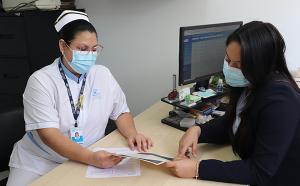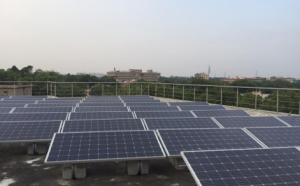Health care is a resource and energy-intense service sector with a huge climate footprint. Recent evidence has shown that apart from its greenhouse gas emissions and the massive utilization of energy sources, the most significant contribution to the health sector’s carbon footprint comes from procuring goods and services in the entire supply chain of its operations.
There is a growing movement toward climate-smart, low-carbon health care. The challenge can be addressed by reducing the health sector’s carbon footprint by procuring sustainable alternatives that are mindful of the environmental, social, and health impacts.
In India, a comprehensive National Green Hospital Standard Accreditation was developed in collaboration with the Health & Leadership Platform & Quality Accreditation Institute (QAI). The developed standard was open for stakeholder consultation from March 2019 to May 2019, and experts from various national and international bodies gave their comments and suggestions in the stakeholder consultation process. The standard was successfully registered under QAI in July 2019, and its first evaluator assessor training was conducted on September 7 and 8, 2019, at the Public Health Foundation of India.
About SHiPP
The Sustainable Health in Procurement Project (SHiPP) was a four-year program developed by the United Nations Development Programme (UNDP) in collaboration with Health Care Without Harm and funded by the Swedish International Development and Cooperation Agency (SIDA), that aimed to reduce the harm to people and the environment caused by the manufacture, use, and disposal of medical products and by the implementation of health programs.
With an expansive and diverse network of over 1,700 members in more than 80 countries, GGHH was a key vehicle to engage the health sector around the globe on sustainable procurement through the Sustainable Health in Procurement Project (SHiPP).
July 23, 2025
March 10, 2025
February 06, 2025
July 30, 2024
June 27, 2024
May 28, 2024
February 21, 2024
October 04, 2023
September 20, 2023
September 06, 2023
August 30, 2023
August 16, 2023
August 23, 2023
July 26, 2023
June 28, 2023
June 21, 2023
June 14, 2023
May 31, 2023
May 17, 2023
May 03, 2023
April 19, 2023
March 08, 2023
February 23, 2023
February 14, 2023
February 01, 2023
January 18, 2023
January 05, 2023
December 13, 2022
November 30, 2022
November 16, 2022
October 19, 2022
October 05, 2022
September 29, 2022
September 28, 2022
August 10, 2022
May 31, 2022
April 11, 2022
January 13, 2022
January 06, 2022
November 05, 2020
October 14, 2020







































